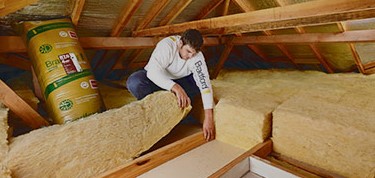Spray foam attic insulation is a highly effective method of insulating your attic, providing a seamless, airtight barrier that helps to reduce energy costs and increase comfort in your home builder. This durable and long-lasting insulation option helps prevent air leakage and the accumulation of moisture in your attic.
In addition to providing excellent insulation, spray foam insulation also helps to protect against mold and mildew growth, as it creates a waterproof seal that prevents moisture from entering the attic. With its ability to conform to any space and its long lifespan, spray foam attic insulation is a cost-effective solution that can provide substantial energy savings and improve the overall efficiency of your home.
Benefits Of Spray Foam Attic Insulation
Spray foam attic insulation offers numerous benefits, making it a popular choice among homeowners. Firstly, it provides excellent insulation, effectively sealing gaps and cracks in the attic. This creates an airtight barrier, preventing heat loss or gain and ensuring optimal energy efficiency.
Secondly, spray foam insulation is known for its high R-value, which indicates its ability to resist heat flow. This means your home will stay comfortable all year round, regardless of the weather outside. Additionally, spray foam insulation is durable and long-lasting, eliminating the need for frequent replacements or repairs.
It also acts as a barrier against moisture and helps to prevent mold and mildew growth, promoting a healthier indoor environment. Lastly, spray foam attic insulation can significantly lower your utility bills by reducing energy consumption, providing long-term cost savings.
Overall, investing in spray foam attic insulation is a wise decision that offers a range of benefits for homeowners.
Installation Process Of Spray Foam Attic Insulation
Spray foam attic insulation is popular for homeowners seeking energy efficiency and comfort. The installation involves:
- Thoroughly preparing the attic space.
- Ensuring proper ventilation.
- Sealing any gaps or cracks.
The foam is then sprayed onto the attic surface, expanding to fill cavities and create a seamless barrier against heat loss and air infiltration.
Professional installation is recommended to achieve maximum effectiveness and safety. Proper training and equipment are essential to apply insulation evenly and without gaps. Overall, spray foam attic insulation offers significant energy savings and home comfort benefits, making it a worthwhile investment for many homeowners.
Comparing Spray Foam To Traditional Attic Insulation
Spray foam attic insulation offers numerous advantages over traditional attic insulation. One key difference is its superior air-sealing properties. Unlike other insulation materials, spray foam creates an airtight seal that minimizes air leakage. This is crucial because air leakage is a leading cause of home energy loss, resulting in higher utility bills.
Additionally, spray foam insulation provides exceptional thermal insulation, effectively preventing heat transfer in both summer and winter. Creating a barrier against outside elements helps maintain a comfortable indoor temperature year-round. Another advantage of spray foam is its ability to fill even the smallest nooks and crannies, ensuring complete coverage and eliminating any gaps that could compromise insulation effectiveness.
Furthermore, spray foam insulation has a longer lifespan compared to traditional materials, reducing the need for frequent replacements. In conclusion, spray foam attic insulation offers superior performance and long-term benefits, making it a worthwhile investment for homeowners.
Environmental Impact Of Spray Foam Attic Insulation
Spray foam attic insulation is gaining popularity as an effective energy efficiency and home comfort solution. However, it is essential to consider the environmental impact of this insulation material. Spray foam insulation is made from petroleum-based chemicals that contribute to greenhouse gas emissions during production.
Additionally, the installation process requires potent chemicals that can release harmful volatile organic compounds (VOCs) into the air. These VOCs have been linked to various health issues and can contribute to air pollution. Furthermore, spray foam insulation is not biodegradable and can end up in landfills once it reaches the end of its lifespan.
While spray foam attic insulation offers numerous benefits, it is crucial to weigh the environmental consequences. Considering alternatives such as cellulose or mineral wool insulation can be a more sustainable choice for those concerned about the ecological impact.
Spray Foam Attic Insulation Best Company Thermo Shield LLC
Spray foam attic insulation is an essential investment for a home builder. Thermo Shield LLC is the best company for this service. Their expertise ensures top-notch insulation efficiency and energy savings. Thermo Shield LLC focuses on superior customer satisfaction and uses high-quality materials and advanced techniques to deliver exceptional results.
Thermo Shield LLC stands out for its commitment to excellence when choosing the proper insulation for your attic. If you want to improve your home’s energy efficiency and comfort, spray foam attic insulation from Thermo Shield LLC is a wise choice.
Conclusion
Spray foam attic insulation offers excellent energy efficiency and cost savings. Properly installed, it seals air leaks and provides a barrier against moisture, mold, and pests. Investing in this efficient insulation solution allows homeowners to enjoy greater comfort, lower energy bills, and a more sustainable living environment.


